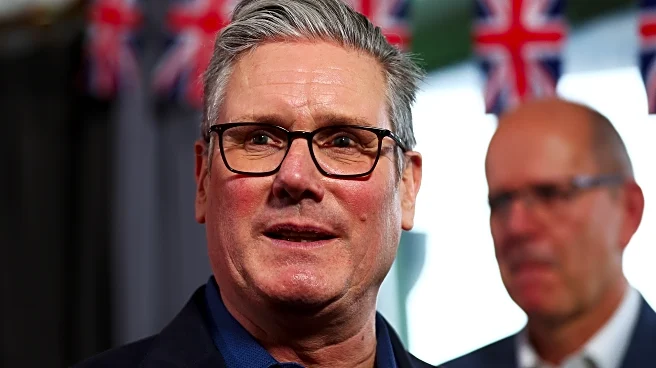What's Happening?
Phil Knight, co-founder of Nike, and his wife Penny have announced a historic $2 billion donation to the Oregon Health & Science University's Knight Cancer Institute. This substantial gift aims to revolutionize cancer care by integrating scientific discoveries with comprehensive patient support. The donation will enable the Knight Cancer Institute to expand diagnostics, access to clinical trials, and provide a full range of support resources for patients, including nutritional, psychological, genetic, and financial counseling. The institute will become a self-governed entity within OHSU, led by Dr. Brian Druker, who has been instrumental in developing targeted cancer therapies. The Knights' investment is inspired by Dr. Druker's vision to transform cancer care and ensure seamless patient experiences from diagnosis onward.
Why It's Important?
This unprecedented donation is set to significantly impact cancer treatment and care, not only in Oregon but potentially nationwide. By establishing the Knight Cancer Institute as a self-governed entity, the initiative aims to streamline patient care and accelerate the development of innovative treatments. The integration of scientific research with patient care resources could serve as a model for other institutions, potentially leading to improved survival rates and quality of life for cancer patients. The Knights' commitment underscores the importance of philanthropy in advancing medical research and healthcare delivery, particularly in the fight against cancer.
What's Next?
The Knight Cancer Institute will form the Knight Cancer Group to manage OHSU's cancer services, with Dr. Brian Druker as its inaugural president. This new organization will have its own board of directors, tasked with overseeing the integration of research and patient care. The initiative is expected to attract further investments and collaborations, enhancing Oregon's reputation as a leader in cancer treatment and research. Stakeholders, including healthcare professionals and policymakers, will likely monitor the institute's progress and outcomes closely, potentially influencing future healthcare policies and funding priorities.
Beyond the Headlines
The Knights' donation highlights the ethical and cultural dimensions of philanthropy in healthcare. It raises questions about the role of private funding in public health initiatives and the potential for such contributions to drive innovation and accessibility in medical care. The focus on patient-centered care reflects a broader shift towards holistic treatment approaches, emphasizing the importance of addressing psychological and social aspects of health alongside medical interventions.











